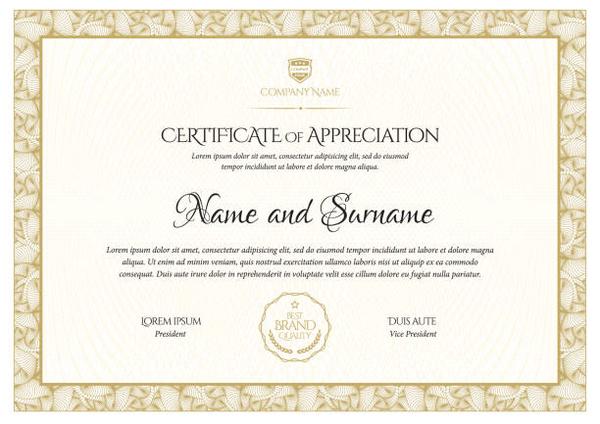The degree of differences between disciplines within academic circles can be overlooked during an interdisciplinary collaboration. My doctoral research suggests this could lead to fake collaboration’.
The problem of fake degrees is widespread impacting both business and private individuals worldwide. Institutions can fight the issue by implementing strict verification processes and updating security features on academic certificates.
International Cooperation to Combat Fake Degrees
Diploma mills and fake degrees business are global in their nature therefore international collaboration is required to tackle this problem. There are several initiatives to ensure that qualifications are transferable across borders, and to in the fight against fake diplomas. The Lisbon Recognition Convention, which has been ratified by many GCC countries, as well as the QAA’s plan to decriminalize the essay mills are two examples.
It is also necessary to ensure that verification services are accessible and easily accessible to individuals. In this way, prospective students can rest assured that their credentials will be verified at the point of application. This prevents people from taking the risk of purchasing fake credentials and then committing fraud.
It is crucial to develop strategies for educating people about the dangers of fake degrees. Public awareness campaigns could help as well as enticing institutions of higher education and students to seek out the correct guidance.
Some individuals who purchase bogus credentials can claim damages against their employer. It is therefore vital for employers to identify individuals who have acquired fake qualifications.
The first step is to make sure that the policies and practices are clearly enacted and implemented, as well as transparent to all staff members, including those in admissions as well as the office of the registrar. In addition, all employees should have appropriate training to identify fake academic credentials.
Diploma Mills and fake degrees
Diploma mills offer fake degrees to students who pay for these fake degrees. It’s hard to trace them since they are usually obscure and operate on several websites. It is believed that they represent a billion-dollar market.
They lure students into their trap by promising a speedy and simple way to secure an attractive job. They usually provide degrees in fields that are considered esoteric, like astrology or naturopathy and make it harder to establish the competence of the person. If they are required to meet any academic standards in any way, they are also reducing them.
The market for buying degrees is motivated by a desire to be regarded as a status symbol, as illustrated by the concept of “status goods.” They bring happiness to those who own them but only at the expense of those who purchase less of them, and are subsequently amazed. This is especially relevant in higher education, where institutions and students strive to be a part of the elite by getting the best degree they can afford.
The competition for fame and status can be a formidable force, especially when students have to pay for tuition and financial strains. It is, however, possible to stop fake degrees and the harm they cause. Through the implementation of the strategies discussed in this article, universities as well as credential evaluation services and employers can work together to stamp out diploma mills. This is a significant cause that could have a real impact on people’s daily lives.
Blockchain Technology for Credential Verification
Blockchain technology has the potential to simplify credential verification and make it more transparent and available to all. This is due to its decentralization capabilities and impermanence. It also has the advantage of interoperability. This means that verification is conducted between the parties who require it. The system reduces fraud risk and costs by eliminating intermediaries.
As a result, educational institutions and employers will benefit from faster and more reliable verification procedures. Students will also be able to authenticate their diplomas with more assurance. In fact, the ed-tech firm Modern Campus has already partnered with French blockchain software developer BCdiploma to provide graduates with a digital tool for storing and sharing their diplomas.
The blockchain holds the unique cryptographic hash of the diploma after it has been digitalized. The hash functions as a digital sign-off, which ensures the authenticity of the degree. Verifiers can then check the digital diploma by simply comparing its hash with the blockchain.
One of the major advantages of blockchain is its secure nature. The data https://lambanggiagiare.net/ is saved in multiple copies across the network. Blockchain networks also have incentives for the security and integrity of the system, like miners earning rewards for their contributions to the network. Any attempt to alter a block is detected by the network and rejected.
Global Standards for Degree Verification
Diploma fraud is a major global problem, and it can take many forms. The fraud could take many types, ranging from a simple fake academic certificate up to massive document fraud and fake diploma mills. This is a serious problem which has many consequences for society. From unintentional hiring to illegal access to regulated professions (like engineering and health care), the negative effects of fake diplomas can be severe.
Educational verification services are among the best ways to combat such a issue. This is a kind of background check that examines the authenticity of an applicant’s education qualifications. This involves contact with an institution of higher education to request evidence of graduation and attendance. This information is then compared to the institution’s database to determine if it’s valid.
While this is a great method to stop fraud, it’s not completely foolproof. It’s because certain institutions will only provide transcripts to the individual themselves which makes it difficult to confirm their credentials. A third-party service that is specialized in this kind of screening can help to identify red flags like insecure grades and unaccredited institutions. It is also able by providing a verification document which is accepted by employers and other institutions. It is particularly important in manufacturing sectors that rely on technical knowledge.












